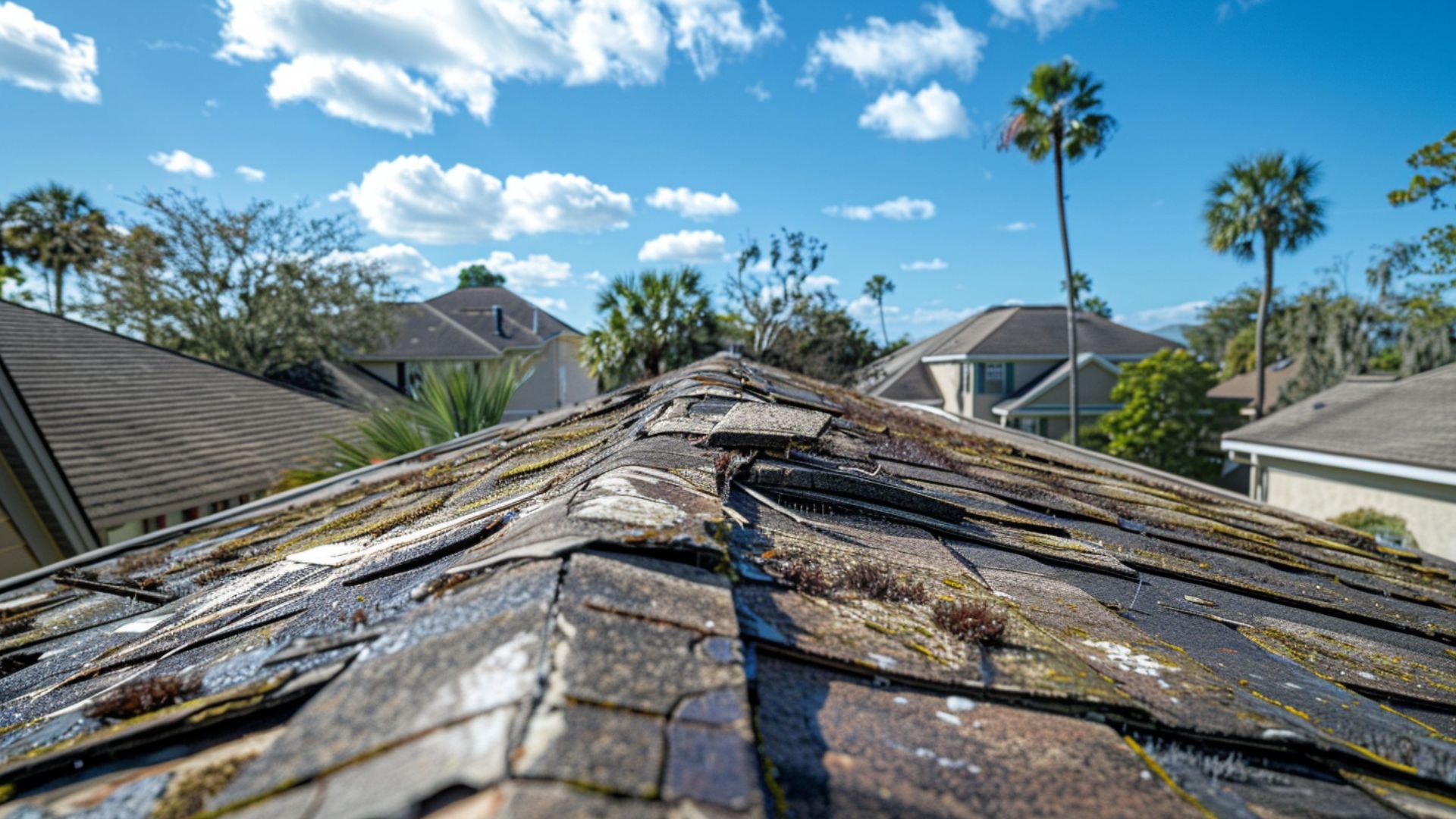
Top 5 Roof Replacements for Hurricane Season Resilience
Living in Jacksonville, you know that hurricane season isn’t just a weather event—it’s a serious concern that can bring high winds, heavy rains, and sometimes devastating damage to your home. But have you ever thought about whether your roof is ready for the next big storm? What’s Your Roof’s Status? Do you find yourself worrying every time a storm is in the forecast? Maybe you’ve noticed shingles flying off, or you’ve patched leaks more times than you can count. When was the last time you had your roof inspected, or considered whether it can handle the powerful forces of a hurricane?
Jacksonville’s tropical climate puts unique stress on our roofs. If you’re already facing these issues, or if you’ve been wondering whether your roof can withstand the next hurricane season, this blog will guide you through the best roof replacement options to keep your home safe.
What You’ll Learn In this blog, we’ll break down the 5 best roof replacements for hurricane resilience. These solutions are designed specifically to withstand Jacksonville’s severe weather conditions, ensuring your home stays protected even during the toughest storms.
So, if you’re tired of quick fixes and are looking for long-term protection for your home, read on!
Ready to secure your home with a trusted roofer?
Call Steel Rudder Roofing now for an immediate consultation!
Key Takeaways
- Roof Inspections Matter: Regular checks help ensure your roof can handle hurricane winds and rain.
- Key Durability Factors: Location, structure, roof shape, and design affect hurricane resistance.
- Metal Roofing: Top choice for wind resistance (up to 160 mph), durability, and energy efficiency.
- Concrete Tile Roofing: Stylish and strong, with excellent impact and water resistance.
- Reinforced Asphalt Shingles: Affordable and able to withstand winds up to 130 mph.
- Clay Tile Roofing: Aesthetic and durable, lasting over 50 years, resistant to strong winds.
- Synthetic Roofing: Lightweight, durable, and impact-resistant, great for hurricane protection.
- Hurricane-Proofing: Add storm shutters, reinforce doors, seal entry points, and trim trees for extra safety
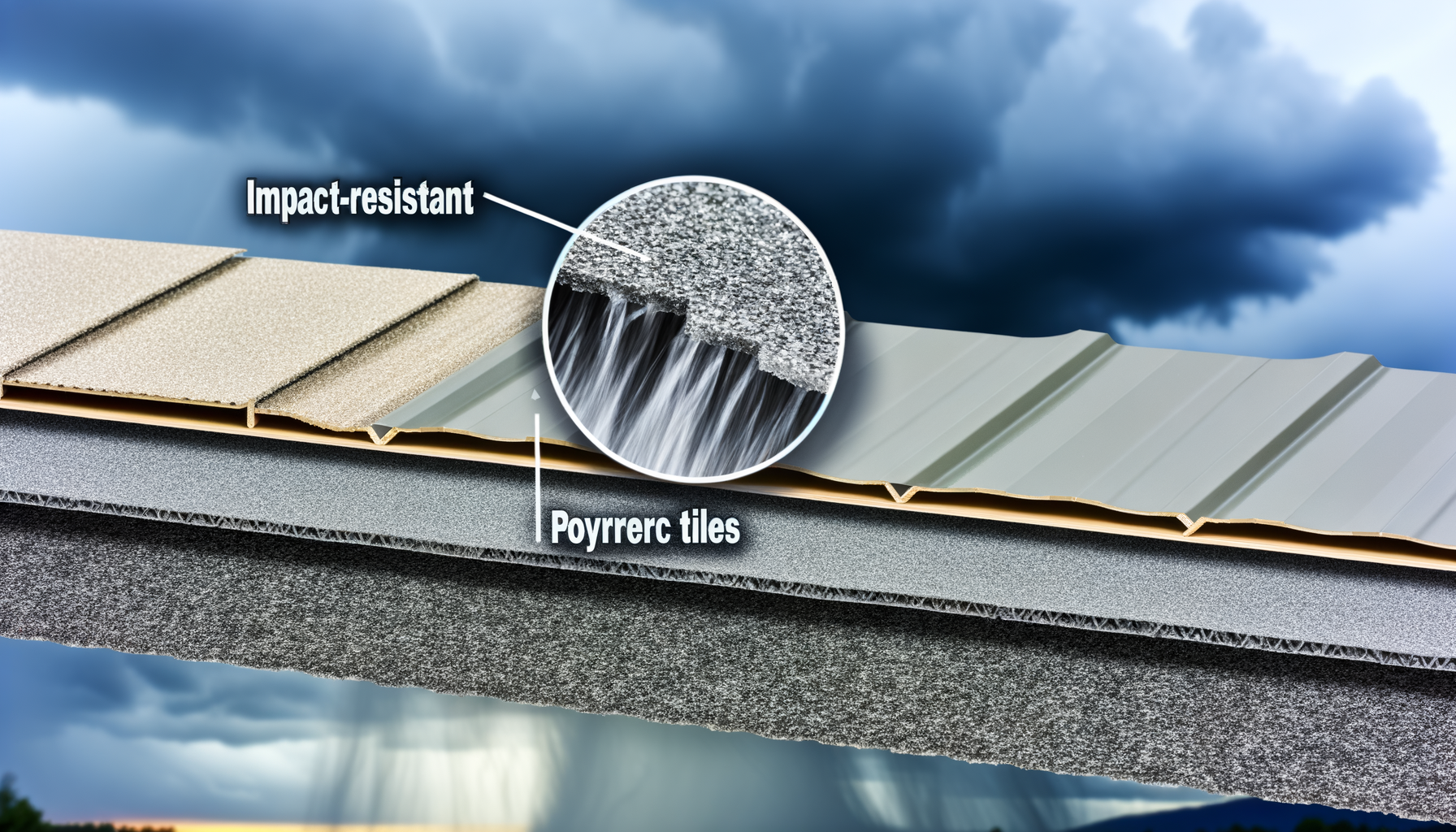
How Hurricanes Impact Roofing
Hurricanes can have a devastating impact on roofing systems, with some roofs surviving major storms intact while others suffer severe damage, or even total failure. The key factors that determine whether your roof can withstand hurricane forces include:
- Location of the home: Homes situated in open or coastal areas are more exposed to high winds.
- Structural connections: Strong, well-constructed connections between the roof and the building help prevent roof failure.
- Roof shape: Hip roofs tend to perform better in hurricanes compared to gable roofs. The angled sides of a hip roof can deflect wind more effectively, while the flat face of a gable roof catches wind, making it more vulnerable.
- Architectural design: Low-slope roofs are more prone to wind damage, while steep-slope roofs, particularly those with a 7:12 pitch, have been found to perform best under high wind conditions.
Even well-constructed roofs can still be compromised during hurricanes due to wind-driven rain. This phenomenon occurs when intense winds force rain horizontally against the roof, rather than it falling vertically from the sky. This side-on assault can last for hours, exposing your roof to large amounts of water. Any small gap in the flashing, missing shingles, or minor damage in the roofing material can allow water to enter the home. Once water breaches the surface, it can saturate the decking, leading to significant leaks and further damage.
To protect your home from hurricane-related roof damage, risk reduction measures are essential. According to FEMA, these include:
- Adhering to building codes: Ensure your home is built to withstand the region’s storm conditions.
- Following construction best practices: Quality workmanship and materials go a long way in ensuring your roof’s resilience.
- Obtaining proper insurance coverage: Standard homeowner’s insurance often doesn’t cover hurricane and flood damage, so it’s crucial to purchase additional coverage where necessary.
While these steps can significantly reduce risk, it’s important to acknowledge that residual risk will always remain during extreme weather events. However, with the right preparation and protection measures, your roof stands a better chance of surviving Florida’s hurricane season intact.
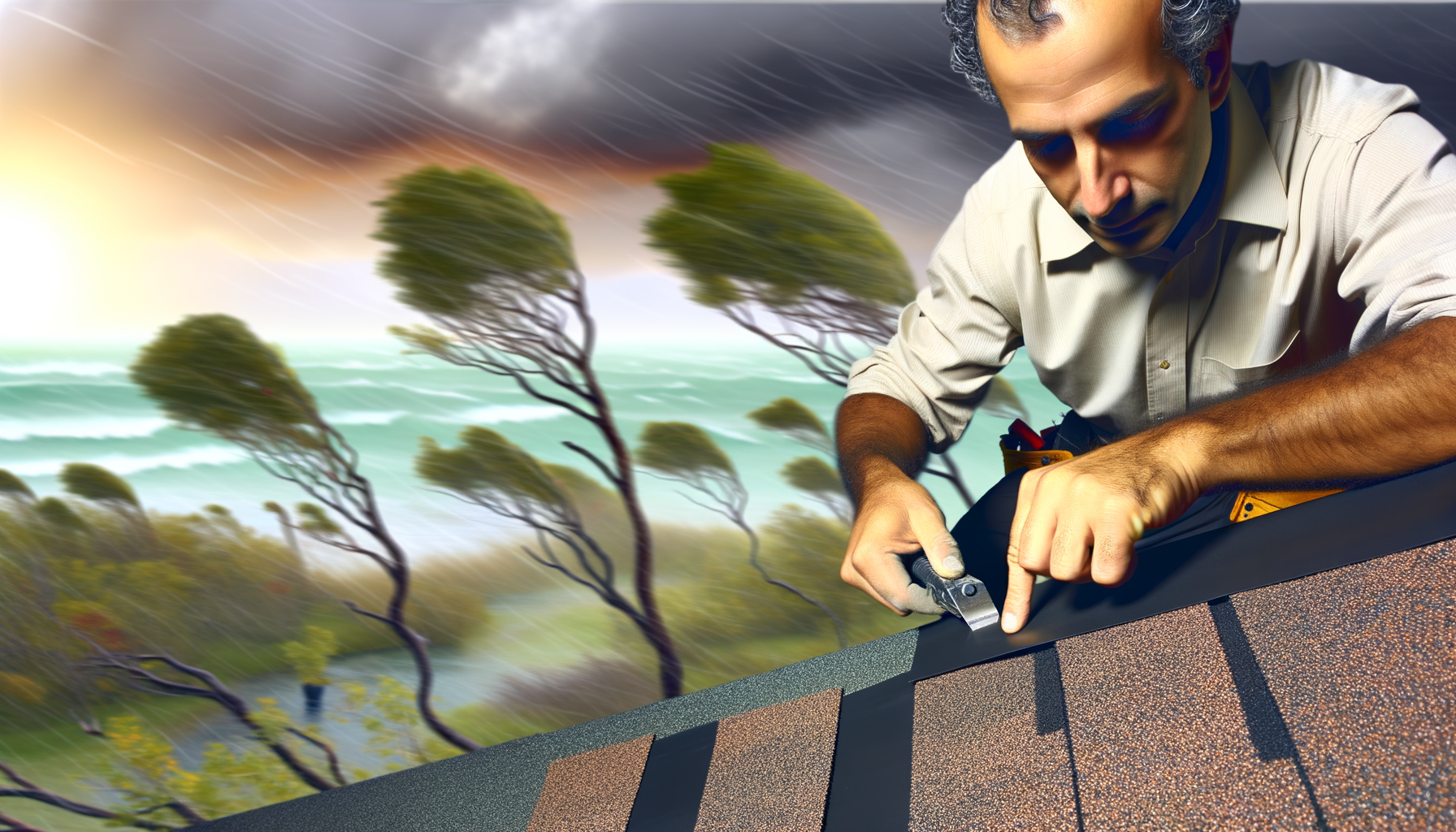
What are the top Best Roof Replacements for Hurricane Season Resilience
1. Metal Roofing: The Ultimate Wind Resistance
Metal roofing is often seen as one of the top choices for hurricane-prone areas like Jacksonville. Known for its strength and resilience, metal roofs offer unparalleled protection against the extreme winds and rain that hurricanes bring. If you’re looking to invest in a roof that will give you peace of mind during storm season, metal roofing is worth considering.
What Metal Roofing Includes:
- Interlocking panels: These create a tight seal that prevents wind and water from penetrating.
- Durability: Metal roofs can last anywhere from 40 to 70 years, offering long-term value.
- Variety of styles: From standing seam to metal shingles, there are aesthetic options to match your home’s style.
Key Benefits:
- Withstands high winds up to 160 mph, making it ideal for hurricane-prone areas.
- Low maintenance, reducing the need for frequent repairs or replacements.
- Energy-efficient, reflecting heat and lowering cooling costs during hot Jacksonville summers.
Jacksonville Consideration:
In Jacksonville’s humid and hot climate, metal roofs also offer excellent heat reflection, keeping your home cooler and helping you save on energy bills during the intense summer months.
2. Concrete Tile Roofing: Strength Meets Style
Concrete tile roofing combines the durability needed for hurricane season with a stylish, aesthetically pleasing appearance. Its heavyweight construction makes it highly resistant to the strong winds and impact from flying debris during a hurricane.
What Concrete Tile Roofing Includes:
- Heavyweight durability: Concrete tiles are designed to resist damage from high winds and projectiles.
- Various styles and colors: Concrete tiles can be molded into different shapes, offering a wide range of design options.
- Natural water resistance: These tiles have excellent water-shedding capabilities, which is essential during heavy rains.
Key Benefits:
- Fire-resistant, adding an extra layer of protection beyond just wind resistance.
- Impact-resistant, perfect for withstanding the debris hurricanes can bring.
- Aesthetic appeal, providing a timeless and elegant look to your home.
Jacksonville Consideration:
Given the coastal and often humid environment in Jacksonville, concrete tiles are ideal for homes that want to balance strength with aesthetic appeal. They fit perfectly into the architectural style of homes in coastal areas.
3. Asphalt Shingles with Enhanced Impact Resistance
Asphalt shingles are one of the most popular roofing options in Jacksonville due to their affordability and versatility. However, when it comes to hurricane season, it’s essential to choose reinforced asphalt shingles that offer enhanced protection against wind and debris.
What Reinforced Asphalt Shingles Include:
- High-quality materials: These shingles are made with advanced compounds that make them more impact-resistant.
- Proper installation: When installed correctly, these shingles can withstand wind speeds up to 130 mph.
- Affordable options: Asphalt shingles remain one of the most cost-effective roofing solutions, even with enhanced durability.
Key Benefits:
- Cost-effective for homeowners who need to replace their roof without breaking the bank.
- Widely available, making repairs and replacements easier.
- Versatile in style, available in a wide range of colors and textures to match your home’s exterior.
Jacksonville Consideration:
If you’re on a budget but still want a roof that can hold up during hurricane season, choosing impact-resistant asphalt shingles is a smart move. Just be sure to opt for high-quality varieties to maximize storm protection.
4. Clay Tile Roofing: Traditional Beauty with Durability
For those looking for a more traditional aesthetic with added durability, clay tile roofing is a solid choice. These tiles have been used for centuries, offering a mix of beauty and strength that makes them ideal for coastal areas like Jacksonville.
What Clay Tile Roofing Includes:
- Natural materials: Clay tiles are made from natural earthenware, giving them a unique, eco-friendly appeal.
- Customizable designs: They come in a range of earthy colors and curved shapes to enhance your home’s curb appeal.
- Long-lasting durability: Clay tiles are incredibly durable and often last over 50 years.
Key Benefits:
- Highly wind-resistant, capable of standing up to hurricane-level winds.
- Environmentally friendly, as they are made from natural, recyclable materials.
- Energy-efficient, providing natural insulation that keeps homes cool during Jacksonville’s heatwaves.
Jacksonville Consideration:
While clay tiles are heavy and may require additional structural support, they are an excellent choice for homes in coastal regions that face strong winds and need a long-lasting, sustainable solution.
5. Synthetic Roofing Materials: High Performance with Less Weight
If you’re looking for a modern solution that offers durability without adding weight, synthetic roofing materials might be the right fit. These materials, such as rubber or composite shingles, mimic the look of natural roofing while offering enhanced storm protection.
What Synthetic Roofing Materials Include:
- Advanced compounds: Made from a combination of rubber, plastic, or composite materials.
- Customizable design: Can mimic the look of wood, slate, or tile, providing plenty of design flexibility.
- Lightweight structure: Ideal for homes that can’t support the weight of heavy roofing materials like clay or concrete.
Key Benefits:
- Impact-resistant, standing up to flying debris during a hurricane.
- Long-lasting, with many synthetic roofs offering warranties of up to 50 years.
- Eco-friendly, often made from recycled materials, contributing to a more sustainable home.
Jacksonville Consideration:
For homeowners in Jacksonville who need hurricane protection but want to avoid heavier roofing materials, synthetic options provide a lighter, yet durable alternative that can stand up to the elements.
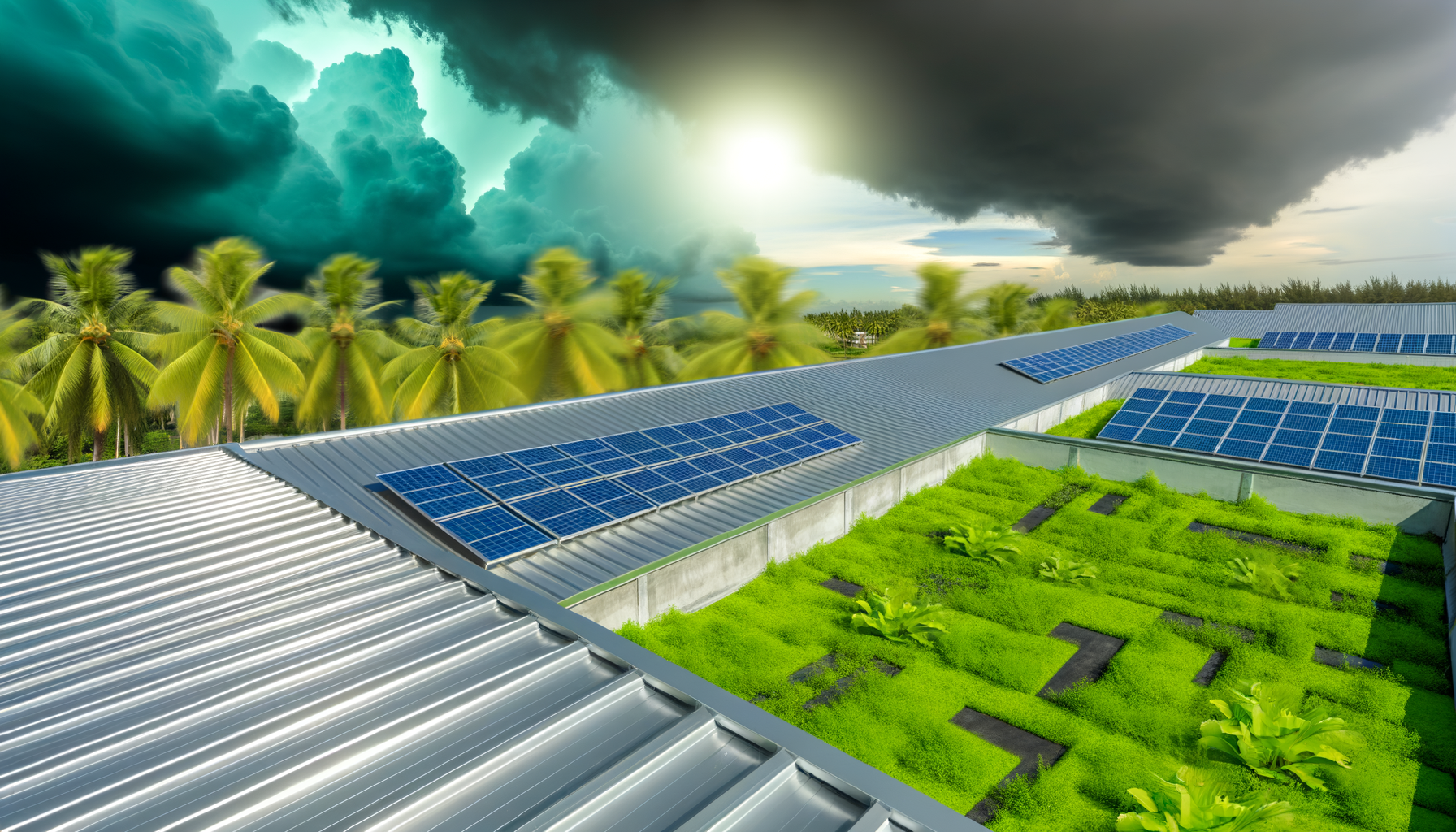
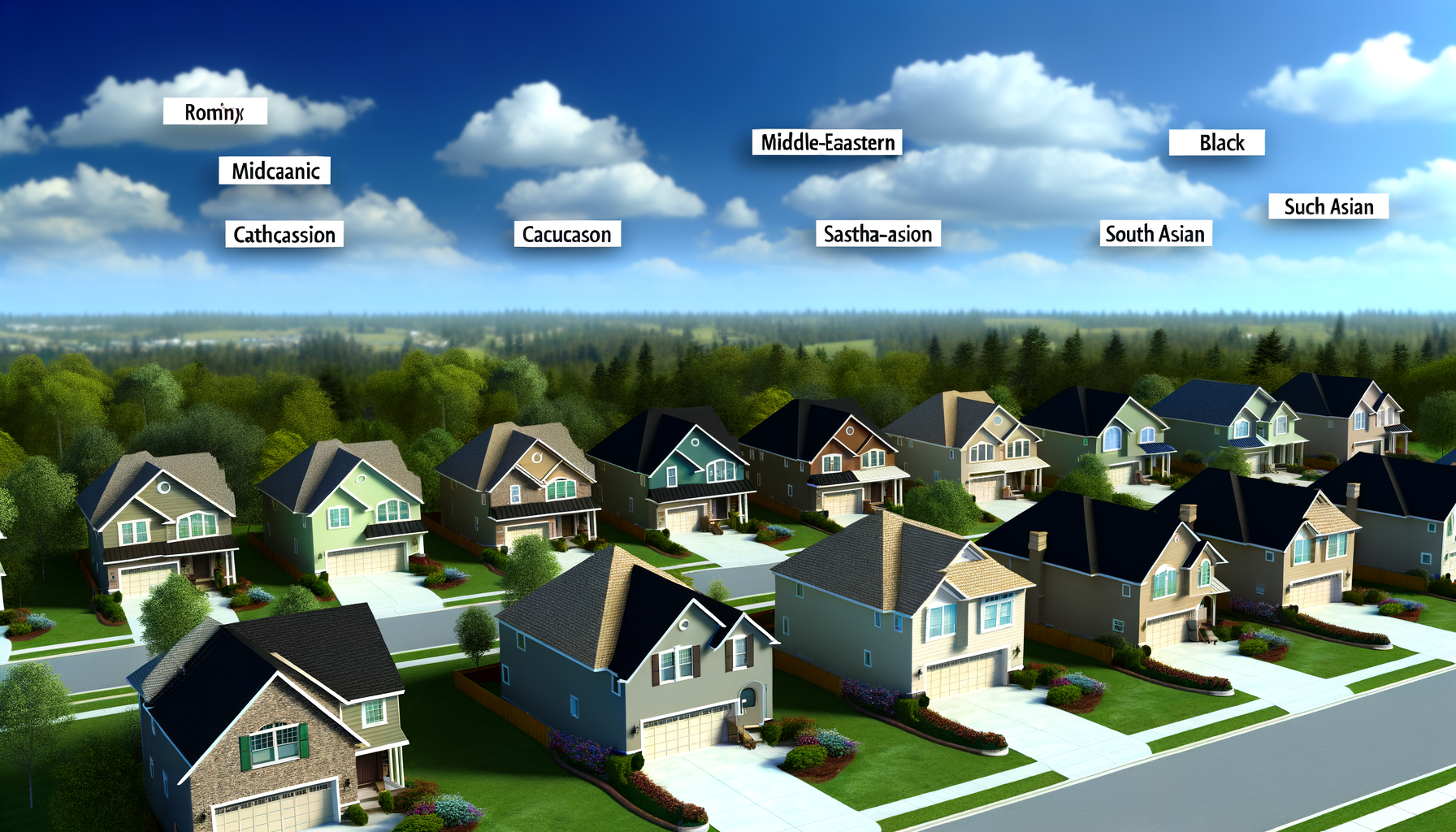
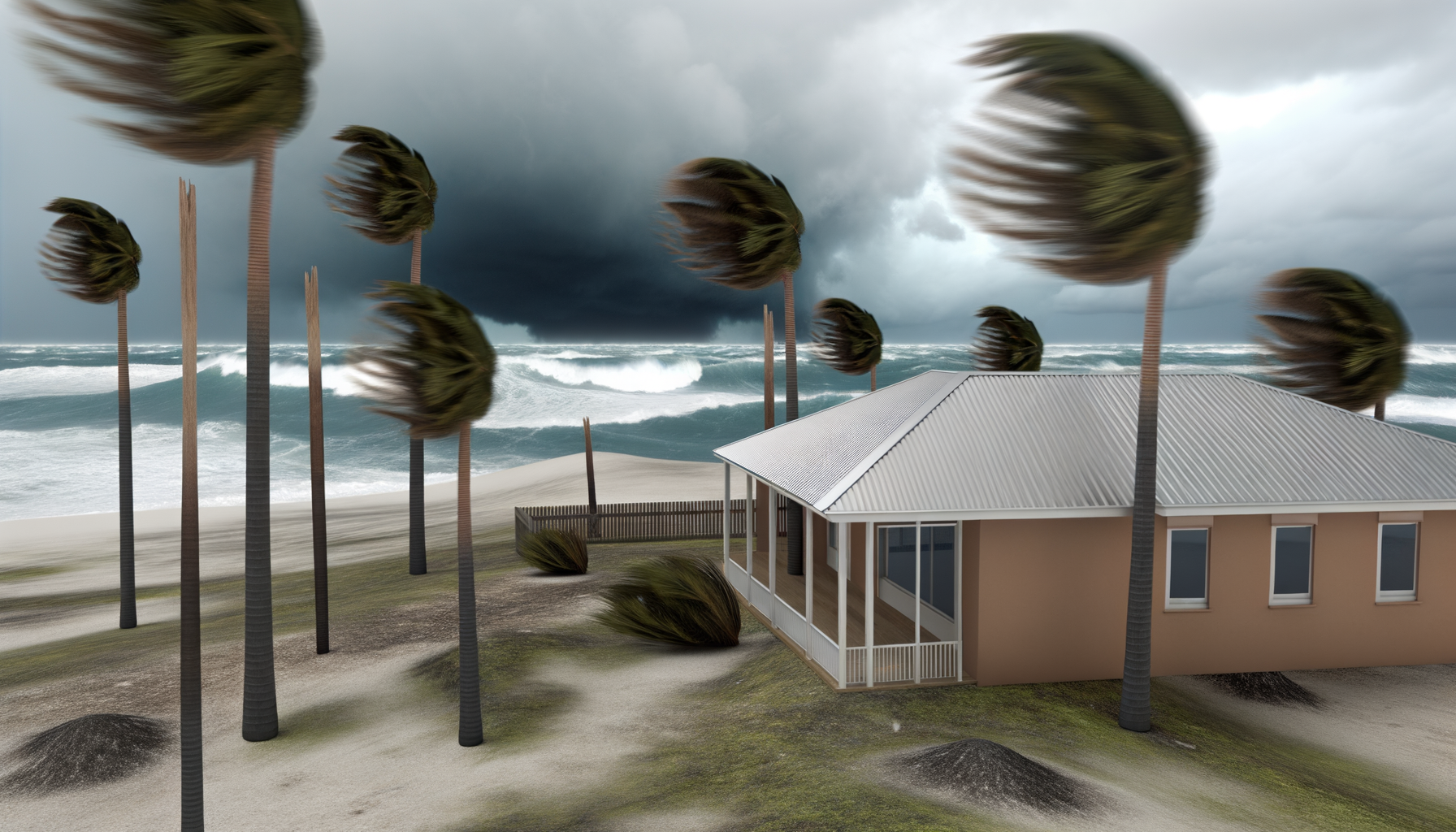
Preparing your roof for hurricane season is essential for protecting your home in storm-prone areas like Jacksonville. Choosing the right roofing material can make a significant difference in withstanding high winds, heavy rains, and debris. Options like metal roofing, concrete tiles, reinforced asphalt shingles, clay tiles, and synthetic materials each offer unique benefits tailored to hurricane resilience.
Regular inspections and hurricane-proofing measures—such as reinforcing doors, installing shutters, and sealing entry points—further enhance your home’s protection. By investing in a durable, storm-ready roof, you ensure your home stays safe during Florida’s intense hurricane season.
How long do you want to deal with roofing problems?
Contact us for a free consultation and start your journey to a new, worry-free roof with Steel Rudder Roofing!
Get in Touch
(904) 699-4573
kenbaker@steelrudder.com
Hours of Operation
Monday – Friday: 8am – 6pm
Saturday – Sunday: 9am – 1pm
Our Headquarters
10151 Deerwood Park Blvd.
Building 200, Suite 250
Jacksonville, FL 32256
